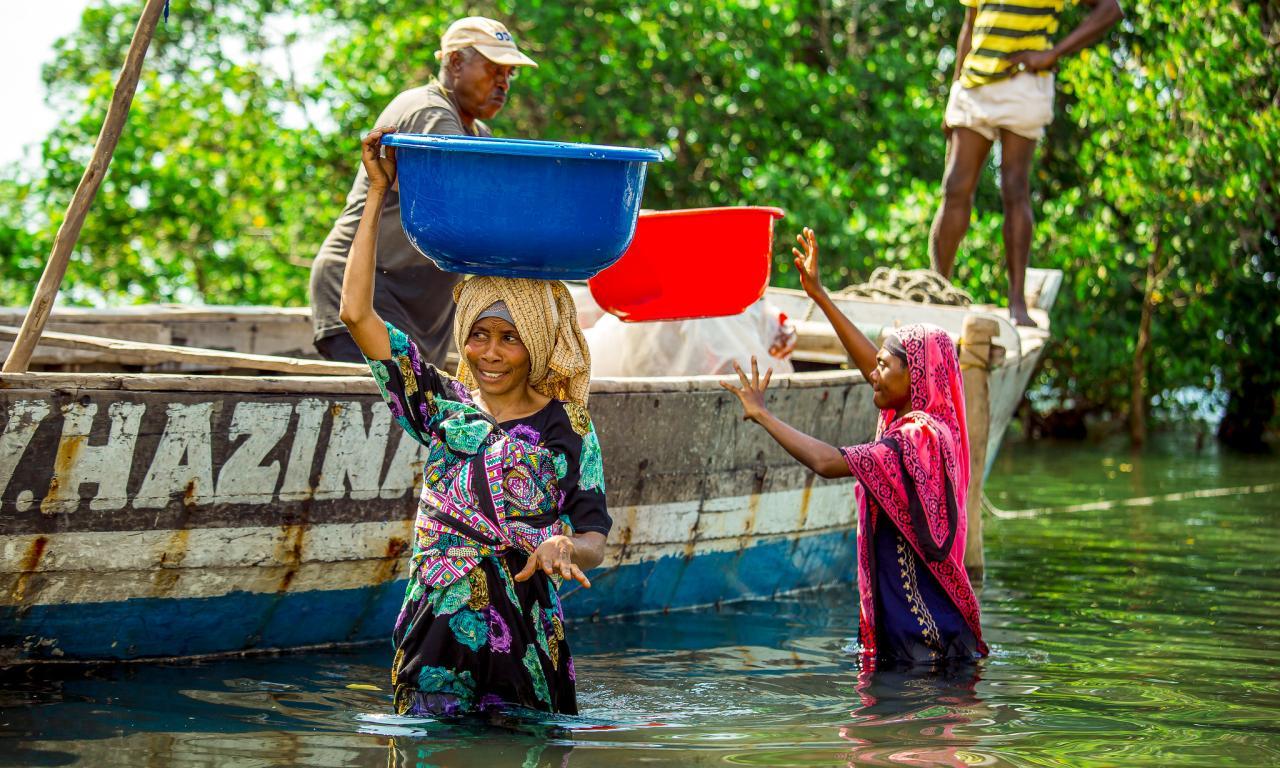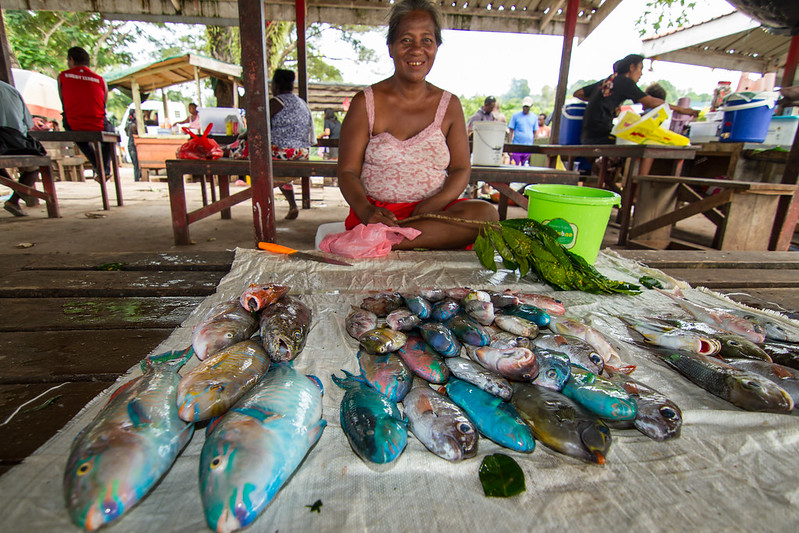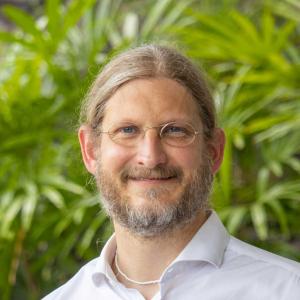
Sunday is World Oceans Day. On Monday, the UN Ocean Conference (UNOC3) begins in Nice, France, where global leaders will focus on protecting the ocean. But who is talking about feeding people?
At WorldFish and CGIAR, we are bringing a clear message to UNOC3. The ocean does not just need protection, it must be recognized as a vital source of nourishment, livelihoods, and resilience.
If we are serious about a just and sustainable blue economy, we must put food systems, especially those that serve the most vulnerable, at the heart of ocean governance.
The UNOC3 Zero Draft, which sets out proposed international commitments, signals a strong and urgent call to safeguard the ocean. But the ocean is not just a carbon sink or a biodiversity haven. It is a source of food, income, and resilience for billions. Yet even as the declaration rightly outlines urgent measures for conservation and climate, it still underplays a vital dimension: the ocean’s capacity to sustainably and equitably nourish the world.
At WorldFish, we work across continents to transform aquatic food systems in ways that regenerate ecosystems, nourish communities, and build resilience. While the Zero Draft outlines shared priorities for protecting the ocean, it falls short in recognizing the deep interconnections between biodiversity, food, and livelihoods.
Despite their proven importance, small-scale fisheries and regenerative aquaculture are almost entirely absent from the declaration. This is a missed opportunity. The landmark “Illuminating Hidden Harvests” study, led by the FAO, Duke University, and WorldFish, demonstrates that small-scale fisheries make a significant contribution to nutrition and livelihoods.
Aquatic foods provide essential micronutrients to more than 3 billion people and sustain over 600 million livelihoods, many of them in vulnerable coastal and inland communities. These foods are low-carbon, rich in nutrients, culturally rooted, and resilient to climate shocks. They deserve to be explicitly named and prioritized as part of our ocean solutions.

The Ocean Feeds Us. Policy Should Reflect That
As I wrote recently, in The Economist Impact, small-scale fishers are not merely beneficiaries of development. They are knowledge holders, ecosystem stewards, and frontline innovators.
The Zero Draft calls for empowering marginalized groups. Still, such empowerment must be backed by targeted investment, governance inclusion, and data equity, guided by frameworks such as the Voluntary Guidelines for Securing Sustainable Small-Scale Fisheries.
The Zero Draft does make important strides by embracing ecosystem-based approaches and nature-based solutions. These are essential building blocks for a regenerative vision, one that moves us beyond extractive paradigms toward a more sustainable approach, characterized by stewardship and circularity.
But more can be done.
We must elevate aquatic food systems that nourish both people and the planet, such as integrated seaweed and shellfish farming, low-trophic-level aquaculture, and community-managed fisheries. These systems embody the ecological care, inclusivity, and sustainability that a just blue economy demands.
More broadly, governments must integrate ocean and aquatic food agendas into their national food, nutrition, and climate strategies, encompassing Nationally Determined Contributions (NDCs), school feeding programs, the UN Food System Stock Taking (UNFSS), and the High-Level Political Forum (HLPF). Breaking down silos and ensuring policy coherence are essential for achieving the Sustainable Development Goals (SDGs).
While agroecological transitions are gaining ground in terrestrial systems, the ocean remains largely excluded from this paradigm. Yet, the principles of diversified systems, reduced dependency on external inputs, traditional knowledge, and long-term resilience apply equally to aquatic food production. Let us bring agroecological thinking to the sea.
At WorldFish, we're not just advocating this vision - we're delivering it. One example is our Island Food Systems Program, part of the CGIAR 2025–2030 portfolio, a living demonstration of how evidence, equity, and innovation can reshape food systems in the face of climate and nutrition challenges.
Island Food Systems Regenerating Nutrition and Resilience in the Pacific and Beyond
Island nations face unique and urgent challenges - limited arable land, high reliance on food imports, escalating climate risks, and the double burden of undernutrition and diet-related disease. 14 of the 20 countries with the highest obesity rates are islands, including nine in the Pacific.
WorldFish’s Island Food Systems Program responds with a bold vision: that by 2030, island governments and partners will be implementing national programs that promote nutrition, climate resilience, and local empowerment.
The program will be delivered through long-term partnerships in the Solomon Islands and Timor-Leste, in collaboration with numerous local and regional partners, including the Pacific Community (SPC), ANCORS, and WorldVeg.
Islands are not just vulnerable; they are also living laboratories of integrated systems innovation. Their lessons are relevant not only for the Pacific but also for other Small Island Developing States across the Caribbean, Indian Ocean, and beyond.
Toward a Just Ocean Economy
The Zero Draft calls for increased investment and blended finance for sustainable ocean economies. This is welcome. But finance must be scaled, redirected, and democratized. We must move away from subsidizing overfishing and toward community-led, science-informed, and ecologically sound solutions.
Philanthropies, governments, and investors must work with communities, not just in their name. This means recognizing and resourcing local leadership, from small-scale fishers and women processors to Indigenous knowledge holders and youth innovators.
The UNOC3 Zero Draft is a strong foundation. But declarations must evolve into inclusive, action-oriented frameworks that fully integrate people, food, and ecosystems into ocean governance.
As part of global efforts such as the Blue Food Coalition and the Global Action Network, we work alongside partners worldwide to ensure aquatic foods are recognized as central to climate, biodiversity, and nutrition solutions.
At WorldFish, we are ready to help turn that vision into action, through science, collaboration, and an unwavering focus on equity.
Let’s move from intention to implementation, from fragmentation to integration, from talk to transformation.
The ocean can nourish us if we learn to nurture it.
Join us at UNOC3 and help put aquatic foods at the heart of ocean governance.
